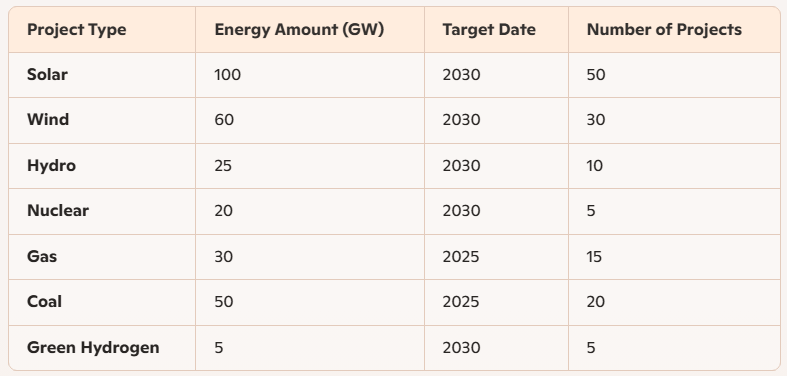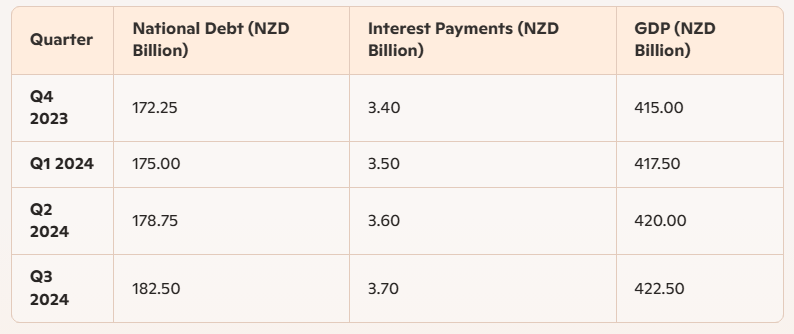According to Stuff, the “NZ climate change minister celebrates COP29 carbon market deal”.(1) I don’t see why: it is a calamity and the coalition should be ashamed.
New Zealand already pays NZD 235 million annually to the COP (Conference of Parties) and will continue to do so until 2026. With COP29, contributions from ‘rich’ countries are set to triple, rising from USD 100 billion to USD 300 billion annually.(1) This means higher costs for countries like New Zealand while benefiting nations such as China and India.
China was estimated to have received USD 3 billion in low-carbon transition grants(2) while India received USD 1.5 billion from the World Bank in 2023.(3) These amounts are negligible compared to their economies – just 0.0167 per cent of China’s GDP and 0.0385 per cent of India’s. In contrast, New Zealand’s NZD 235 million contribution represents 0.1 per cent of GDP,(4) placing a disproportionate burden on us.
Adding to the imbalance, New Zealand’s economy is currently shrinking by 0.2 per cent, while China and India’s economies – and their carbon footprints – are growing rapidly.(5,6,7,8)
Adding to the imbalance, New Zealand’s economy is currently shrinking by 0.2 per cent, while China and India’s economies – and their carbon footprints – are growing rapidly.(5,6,7,8)
Despite receiving financial assistance to curb emissions, China and India have increased their carbon footprints by 4 per cent and 8.2 per cent, respectively, due to their economic growth policies prioritising economic expansion over climate concerns. In contrast, New Zealand’s carbon footprint has decreased by 1.8 per cent and the country faces challenges in achieving the economic growth to pay its bills.(9,10,11) The emissions surge in China and India undermines New Zealand’s environmental progress, making our sacrifices seem futile and contradictory.

Click to view
* If New Zealand retained and invested the NZD 235 million annual gratuity at home, it could meet more of its climate responsibilities without making the slightest impact on the efforts of countries such as China and India to ‘go green’.
Further there is no assurance that our money is well spent for the climate change cause, given the ballooning carbon footprints and the evidence of corruption and a widespread lack of accountability in these countries. Their “corruption perception indexes” (CPI) highlight this problem.
Ranking from ‘most reliable and least corrupt’ down to ‘least reliable and more corrupt’ we see that NZ is well regarded, whereas these countries suffer severe corruption issues.(12,13,14)

Click to view
Investing locally in New Zealand’s more reliable and efficient economy would ensure the more effective use of resources and deliver greater benefits both locally and globally.
But, if New Zealand were to withdraw from international COP contributions, would other nations abandon their efforts to ‘go greener’? Unlikely.
Take India, for example – it already has ambitious power-generation plans underway.

Click to view
Amongst its longer-term ‘green energy plans’, India intends to first, by 2025, build 35 fossil-fuelled power plants: 20 coal and 15 gas. Any reduction in COP funds to India, on NZ’s part, will have no effect on these and future plans. In fact, China and India account for nearly all new coal-fired generation – 86 per cent.(15)
* The scale of their plans and the size of their economies are simply so big that our contribution has virtually no sway or effect – but it massively affects us in NZ!
With these plans, India’s and China’s carbon footprint will again increase between now and 2030. Both say that their carbon emissions will only start to reduce by about 2060–2070.(16,17)
Many other countries have a similar ‘lack of ambition’, which means that the COP strategy, despite the climate advocates’ propaganda, is a continuing failure.
As a consequence, as a country that has and could further address climate change, we are effectively throwing good money after bad…and, seriously, this is money we cannot afford.
New Zealand’s financial position is worsening as national debt continues to rise and GDP growth lags behind. At approximately NZD 36,000 of debt per person, New Zealand is far from ‘rich’.(18,19)

Click to view
This raises a critical question: should hundreds of millions of dollars be sent overseas with little assurance of effectiveness – when these funds could be better spent at home?
Redirecting these funds to New Zealand-based initiatives has significant advantages:
- It would stimulate the local economy.
- It would ensure more honest and effective spending.
- It would advance New Zealand’s ‘Net Zero’ targets.
- Upgrading energy transmission infrastructure.
- Developing EV-to-grid innovations.
- Enhancing local energy-to-grid systems (e.g., solar rooftops).
- Establishing giga-battery storage stations.
- Building new power stations, such as gas or geothermal.
- Renovating and upgrading the Huntly Power Station.
- Creating an integrated system plan for energy management.
- Funding climate mitigation projects.
* This significant rise in energy costs could plunge many households into ‘energy poverty’, dramatically affect industrial costs and create an economic inflection point that may lead to a downward spiral.
The planned electricity price hike aims to generate NZD 5.9 billion over five years to fund critical upgrades to New Zealand’s national grid, ensuring reliability to support needs like climate change initiatives.
* Imagine how this could be offset by investing NZD 235 million, or even potentially NZD 700 million per year after 2026, at home.
Finally, at COP29, most of the approximately 67,000 attendees, hypocritically, arrived by plane, where a valuable lesson from airline safety was overlooked. Passengers are informed before take off that, in emergencies, they should secure their own oxygen masks before helping others. It is a shame that the NZ COP delegation and even our stay-at-home politicians ignore flight attendants.
References
1. NZ climate change minister celebrates COP29 carbon market deal: https://interactives.stuff.co.nz/2019/09/the-voting-climate/
2. China aims for green energy with $3B investment in low-carbon initiatives: https://www.climatenewstoday.com/china-green-investment-3b
3. World Bank approves ₹12,600-crore financing for India’s clean energy transition: https://www.thehindubusinessline.com/news/national/world-bank-approves-12600-crore-for-indias-clean-energy-transition/article67026152.ece
4. New Zealand commits millions to fight climate change despite economic challenges: https://www.stuff.co.nz/nz-new-zealand-climate-funding-235-million
5. Gross Domestic Product (GDP): https://www.stats.govt.nz/indicators/gross-domestic-product-gdp
6. New Zealand GDP Q1 2024: https://www.focus-economics.com/countries/new-zealand
7. China GDP Annual Growth Rate: https://tradingeconomics.com/china/gdp-growth-annual
8. India GDP Annual Growth Rate: https://tradingeconomics.com/india/gdp-growth-annual
9. Carbon emissions increase in China and India: https://www.climatewatchdata.org/data
10. New Zealand’s carbon emissions reduction: https://www.stats.govt.nz/indicators/greenhouse-gas-emissions-by-industry
11. Economic growth and challenges: https://www.worldbank.org/en/country
12. Corruption Perceptions Index 2023. https://www.transparency.org/en/cpi/2023
13. Corruption and Development: A Tale of Two Indices. https://www.worldbank.org/en/news/feature/2023/01/25/corruption-perceptions-index-2023
14. NZ Maintains Top Spot in Anti-Corruption Rankings. https://www.beehive.govt.nz/release/nz-tops-cpi-2023
15. New Report Says China, India Account for Nearly All New Coal-Fired Generation: ttps://www.powermag.com/report-says-china-india-account-for-nearly-all-new-coal-fired-generation/
16. https://pib.gov.in/PressReleaseIframePage.aspx?PRID=1945472
17. https://climateactiontracker.org/countries/china/
18. New Zealand government debt-to-GDP statistics, Trading Economics: https://www.tradingeconomics.com/new-zealand/government-debt-to-gdp
19. New Zealand government gross debt data, CEIC Data: https://www.ceicdata.com/en/indicator/new-zealand/government-debt, https://www.treasury.govt.nz/publications/year-end/financial-statements-2024?form=MG0AV3
20. https://www.interest.co.nz/technology/127999/commerce-commission-tentatively-approves-transpower-and-local-lines-company
Dr Michael John Schmidt left NZ after completing postgraduate studies at Otago University (BSc, MSc) in molecular biology, virology, and immunology to work in research on human genetics in Australia. Returning to NZ has worked in business development for biotech and pharmacy retail companies and became a member of the NZ Institute of Directors. This article was first published HERE



3 comments:
Confirmation that lunacy is alive and well within NZ’s halls of power.
Agree with Rob - it’s like a sort of mass insanity is spreading like a cancer. Urgent treatment is needed. The word “no” might be a good start.
When we have idiots, like Genter, in Parliament, and even our own PM, commonsense seems out the window. But, great article, Michael. Here's hoping it will gain some traction and we call a halt to this nonsense. After all, we are all paying, so why shouldn't we all get a say?
Post a Comment
Thank you for joining the discussion. Breaking Views welcomes respectful contributions that enrich the debate. Please ensure your comments are not defamatory, derogatory or disruptive. We appreciate your cooperation.